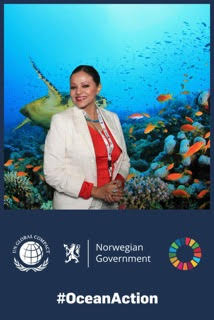Theresa May faced cross-party calls to sack her transport secretary, Chris Grayling, last night, after the calamitous collapse of a no-deal Brexit ferry contract handed to a company with no ships.
Senior Tories said the prime minister had turned “a blind eye” to Grayling’s decision to award the £13.8m contract to Seaborne Freight to run ferries between Ramsgate and Ostend, despite widespread derision and accusations that it had been awarded illegally.
The collapse of the contract comes amid growing unease in the international business community about Britain’s preparedness for a no-deal outcome, with less than 50 days until Brexit is due to take place.
Several MPs suggested Grayling should now consider his position after his department revealed the contract had been cancelled, and Bob Kerslake, the former head of the civil service, said the saga would “just confirm the view of many that this country is in a mess”.
Anna Soubry, a former Tory business minister, said Grayling “should be quietly considering his position”.
“Chris Grayling holds a critical position in government, trying to mitigate what would be a very serious crisis for the country if we leave the European Union without a deal,” she said. “He has no grip on the very serious nature of his job. The prime minister should also be considering whether there is not someone else who could do the job better.”
Another senior Tory MP said Grayling was a “walking disaster zone”, adding: “A no-deal Brexit would be a major national crisis and stories like this suggest we have not got the people in place who are capable of responding to it.”
Andy McDonald, the shadow transport secretary, said: “While Theresa May needs the few friends she has right now, we cannot have this incompetent transport secretary heaping humiliation after humiliation on our country. He has to go.”
Joining the attacks, Vince Cable, the Lib Dem leader, said: “I very rarely call on ministers to go, but failing Grayling has made too many crass mistakes. He has already lost the confidence of the civil service as they now require a ministerial directive for the government to spend money on ferries.”
Downing Street last night said the prime minister had full confidence in Grayling.
The Department for Transport said the deal was terminated after Irish company Arklow Shipping, which had backed Seaborne, stepped away from the deal. “It became clear Seaborne would not reach its contractual requirements,” a spokeswoman said. “We have therefore decided to terminate our agreement.”
Having awarded the contract to a company without ships, the deal with Seaborne descended further into farce when it emerged the company had copied terms and conditions from what appeared to be a pizza delivery company onto its website.
Several weeks later, the transport select committee published correspondence with Grayling in which he brushed off allegations that the government may have acted illegally by failing to put the deal out to tender.
Lilian Greenwood, the committee’s Labour chair, said the government “should be embarrassed about how this tale is unfolding”. She added: “We must also remember the bigger question we raised, about whether any of the ferry contracts are legal. Grayling’s answer was inadequate and ignored the legitimate concerns.”
Lord Kerslake said “severe damage” had already been done to the UK’s international standing and influence as a result of the Brexit vote. “This appalling saga will confirm the view of many that this country is in a mess,” he said. “However committed and able civil servants are they cannot substitute for effective political leadership.”
Grayling, one of the cabinet ministers who voted for Brexit at the referendum, was defended by fellow Brexiters last night. Former Brexit secretary David Davis said: “The department was right to award this and right to take action now. The important thing is that both Calais and the department are working extremely hard to keep trade moving.”
Jacob Rees-Mogg, another leading pro-Brexit Tory MP, suggested Arklow might have ended support after political pressure in Ireland.
There is increasing international business concern about the prospect of a no-deal Brexit. The Japan Business Council in Europe, a body that represents the European arms of 85 Japanese companies including Fujitsu, Hitachi, Toyota, Honda and Panasonic, said its members were preparing for the “severe consequences” of leaving the EU without a deal.
“A no-deal exit would bring severe consequences not only to our member companies directly, but also to our supply chains and customers,” said Lars Brückner and Graham Holman, joint heads of the council’s Brexit task force. “It would therefore have a series of negative impacts on the economy and citizens more broadly. JBCE member companies are speeding up and finalising contingency planning in preparation for a no-deal Brexit.
“This affects a broad range of business and support activities, including supply chain management and logistics, customs and duties, regulatory and compliance, data flows and transfer, HR and employment and finance and investment.”
Since you’re here…
… we have a small favour to ask. The Guardian’s model for open, independent journalism is working and it’s inspiring – thank you. Readers’ support powers our work, giving our reporting impact and safeguarding our essential editorial independence. This means the responsibility for protecting independent journalism is shared, empowering us all to bring about real change around the world. Your support gives Guardian journalists the time, space and freedom to report with tenacity and rigor, to shed light where others won’t. It emboldens us to challenge authority and question the status quo. We have chosen an approach that allows us to keep our journalism accessible to all, regardless of where they live or what they can afford. This means we can foster inclusivity, diversity, make space for debate, inspire conversation – so more people, across the world, have access to accurate information with integrity at its heart.
The Guardian is editorially independent, meaning we set our own agenda. Our journalism is free from commercial bias and not influenced by billionaire owners, politicians or shareholders. No one edits our editor. No one steers our opinion. This is important as it enables us to give a voice to those less heard, challenge the powerful and hold them to account. It’s what makes us different to so many others in the media, at a time when factual, honest reporting is critical.
Every contribution we receive from readers like you, big or small, goes directly into funding our journalism. This support enables us to keep working as we do – but we must maintain and build on it for every year to come.






















